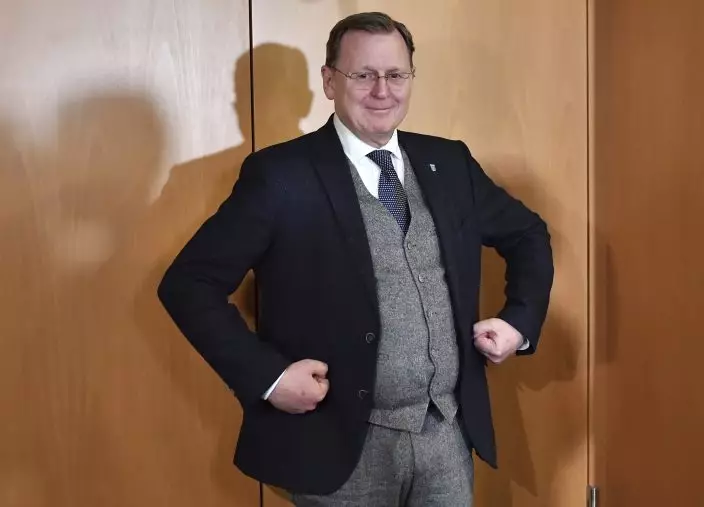State lawmakers in eastern Germany agreed on a way to vote in a new state government without the support of a far-right party, avoiding a repeat of a decision earlier this month that caused a political uproar at the national level.
Thuringia state lawmakers from several parties said late Friday that they agreed to hold another vote next month to choose the state's governor and to have the next state elections in April 2021.
An earlier vote in parliament led to the ouster of Thuringia's incumbent governor. A pro-business candidate won the office only because lawmakers from the far-right Alternative for Germany (AfD) party supported him along with state representatives from the regional branch of Chancellor Angela Merkel's Christian Democratic Union.

Bodo Ramelow, former Minister President of Thuringia smiles in the Thuringian State Parliament in Erfurt, Germany, Friday, Feb. 21, 2020. State lawmakers in the eastern Germany federal state cleared the way for getting a new government without the support of a far-right party. Lawmakers from several parties announced late Friday in Thuringia that they agreed to hold a new vote in parliament on the state governor next month and plan to have new state elections in April 2021. (Martin Schuttdpa via AP)
The Free Democrat's Thomas Kemmerich's acceptance of AfD's votes - and the Christian Democrats' voting with far-right colleagues - appalled left-leaning parties and many in the mainstream center-right camp. Merkel called Kemmerich's election “inexcusable.”
He resigned three days after winning the state governorship. Partnering with the far-right which has been a political taboo since after World War II.
Under the agreement announced Friday, state leaders of Merkel's party agreed to support the reelection of Thuringia's previous state governor, Bodo Ramelow of the left-wing Linke party.
The government Ramelow led lost its majority in an October state election. In a first for Germany, the election produced no majority coalition without the addition of AfD or Ramelow's party, which the Christian Democratic Union shuns as a descendant of East Germany's ruling communists.


